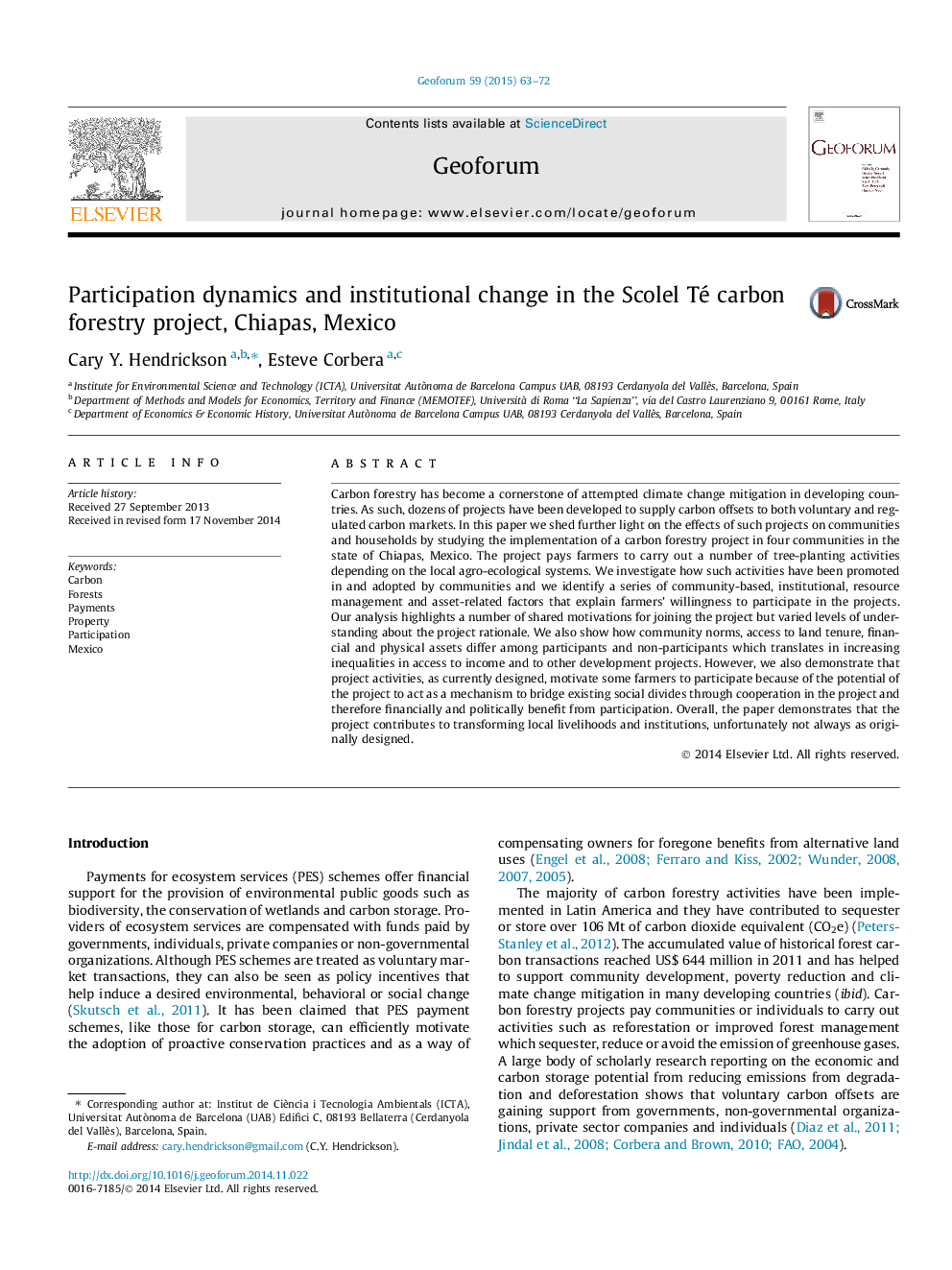| Article ID | Journal | Published Year | Pages | File Type |
|---|---|---|---|---|
| 5073968 | Geoforum | 2015 | 10 Pages |
Abstract
Carbon forestry has become a cornerstone of attempted climate change mitigation in developing countries. As such, dozens of projects have been developed to supply carbon offsets to both voluntary and regulated carbon markets. In this paper we shed further light on the effects of such projects on communities and households by studying the implementation of a carbon forestry project in four communities in the state of Chiapas, Mexico. The project pays farmers to carry out a number of tree-planting activities depending on the local agro-ecological systems. We investigate how such activities have been promoted in and adopted by communities and we identify a series of community-based, institutional, resource management and asset-related factors that explain farmers' willingness to participate in the projects. Our analysis highlights a number of shared motivations for joining the project but varied levels of understanding about the project rationale. We also show how community norms, access to land tenure, financial and physical assets differ among participants and non-participants which translates in increasing inequalities in access to income and to other development projects. However, we also demonstrate that project activities, as currently designed, motivate some farmers to participate because of the potential of the project to act as a mechanism to bridge existing social divides through cooperation in the project and therefore financially and politically benefit from participation. Overall, the paper demonstrates that the project contributes to transforming local livelihoods and institutions, unfortunately not always as originally designed.
Related Topics
Social Sciences and Humanities
Economics, Econometrics and Finance
Economics and Econometrics
Authors
Cary Y. Hendrickson, Esteve Corbera,
